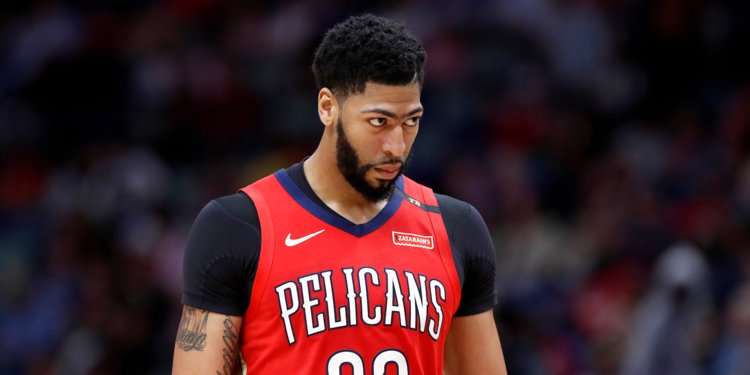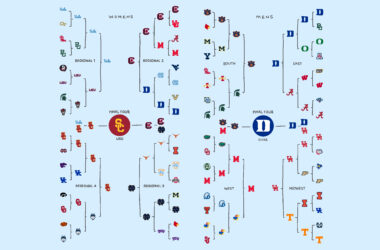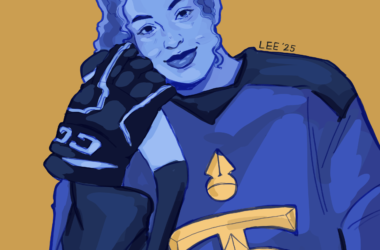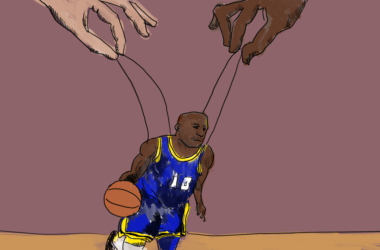Anthony Davis is still a member of the New Orleans Pelicans despite his best efforts to leave the only NBA team he has ever played for. Amid a sub-.500 season in which the Pelicans have struggled to make the playoffs, Davis joined a growing list of NBA stars demanding a trade. Consequently, the Los Angeles Lakers made painstaking efforts to acquire Davis, but the Pelicans held onto their franchise player through the Feb. 7 trade deadline. While New Orleans may simply seek a better offer in the summer, there are two more reasons they elected to keep Davis. The Pelicans are frustrated at the Lakers’ alleged tampering, plus the league is applying pressure on them to deny the outright trade demands. Such pressure, however, stems from a misunderstanding: Teams are overestimating the threat of trade requests and underrating their own management’s accountability.
NBA stars’ trade requests are nothing new: Wilt Chamberlain and Kareem Abdul-Jabbar both wished their way to Los Angeles in the 1960s and ‘70s, respectively. In recent years, however, the frequency of such demands has increased. Players like Paul George and Kawhi Leonard have learned how to leverage expiring contracts and the threat of free agency. Now, Davis is giving it a try.
The problem is that front offices are worried that this dynamic hurts small-market teams. Franchise players often demand trades to larger markets to grow their personal brands, leaving small-market teams in a weakened position in trade negotiations.
What these concerns fail to recognize, however, is the role that management has historically served in determining the places that players seek to play. For every Chamberlain, who sought out the Los Angeles lifestyle, there has been a Shaquille O’Neal, who forced his way out of Los Angeles in 2004. More recently, Kawhi Leonard left San Antonio because of his issues with team management regarding his quadricep injury. Both Davis and Kristaps Porziņģis have requested trades due to years of dismal team personnel management.
Meanwhile, the feared large markets of Los Angeles and New York have almost universally failed to acquire any top-tier talent from these trade requests for years. By thinking that these players will be available in free agency, teams like the Lakers, Clippers, and Knicks have instead waited to make their moves. In turn, players often find new homes with teams who show more immediate interest.
Small-market teams on both sides of these franchise-altering deals have found success. In the Paul George trade, the Indiana Pacers acquired all-star Victor Oladipo, and the Oklahoma City Thunder convinced George to stay and help them compete atop the Western Conference. Additionally, the San Antonio Spurs sent Kawhi Leonard to Toronto in exchange for all-star guard DeMar DeRozan, allowing them to remain in the playoff picture. As for the Raptors, there is still concern that Kawhi Leonard may leave the Raptors in the upcoming offseason, but with their rebuild imminent either way, trying to win right now in the Eastern Conference is a smart move.
These blockbuster deals left all parties in a better situation. The players have learnt to fit in their new cities; teams, that would have received nothing in return if their stars had departed in free agency, acquired all-star talent instead.
To mitigate concerns of players leaving small-market teams, the NBA implemented the Designated Veteran Contract. This component of the 2017 collective bargaining agreement allows teams to offer unmatchable ‘supermax’ deals to their free-agent superstars. The Thunder and Washington Wizards used this provision to retain Russell Westbrook and John Wall, respectively.
Ultimately, the fears arising from star players’ trade requests are overblown. This summer, teams will inundate the Pelicans with sizeable offers for Davis—a fortunate position for New Orleans after years of egregious mismanagement. The Pelicans may be frustrated to see Davis go, but his demand, as that of so many other players, is a direct product of the team’s own managerial failings—a truth certain other teams would do well to reflect upon.









